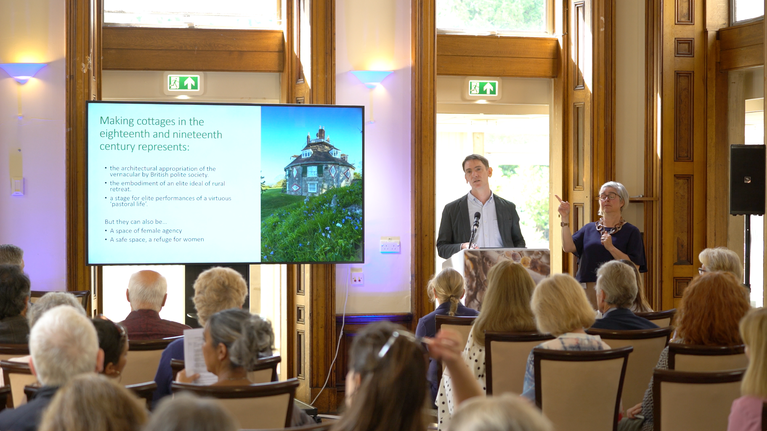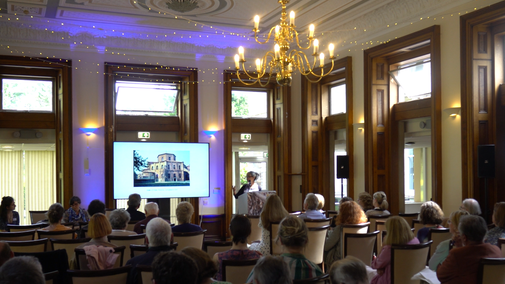A la Ronde Symposium - 'Making Cottages: Rural Retreat and the Appropriation of the Vernacular in the C18th'
- Published:
- 10 December 2024

On 11th July 2024 we held our Symposium, entitled ‘Female Craft and Design in the Eighteenth and Early Nineteenth Centuries’. Held at Reed Hall, University of Exeter, we invited a wide range of people to share stories about A la Ronde and how it connects to the wider world. This paper 'Making Cottages: Rural Retreat and the Appropriation of the Vernacular in the C18th' was presented as the keynote address by Professor Daniel Maudlin.
Allow video to play? This page contains content that is published to YouTube.
We ask for your permission before anything is loaded, as this content may introduce additional cookies. You may want to read the Google YouTube terms of service and privacy policy before accepting.
Making Cottages: Rural Retreat and the Appropriation of the Vernacular in the C18th
Professor Daniel Maudlin presents his paper 'Making Cottages: Rural Retreat and the Appropriation of the Vernacular in the C18th' at the A la Ronde symposium 2024.
Biography: Professor Daniel Maudlin
Professor Daniel Maudlin, is a historian, academic and professor at the University of Plymouth. At the University of Plymouth, he is Faculty Lead for Heritage, Culture and Digital as well as co-lead of the History and Heritage Research Group.
His research in architectural history centres around the relationship between built spaces and material culture.
His most recent publications include: Inns and Empire (OUP, 2024); Eighteenth-Century Architectures (OUP, 2025); Inner Empire: Architecture and Empire in the British Isles with G. A. Bremner (MUP, 2024).

The Compendium
The Compendium is a collection of stories to delight and surprise. You can explore all things A la Ronde here in one central place for the first time. We will be adding new stories for years to come.

The Symposium
On 11th July 2024, A la Ronde hosted its first academic conference, ‘The Symposium: Female Craft and Design in the Eighteenth and Early Nineteenth Centuries’. Learn more about the day here.